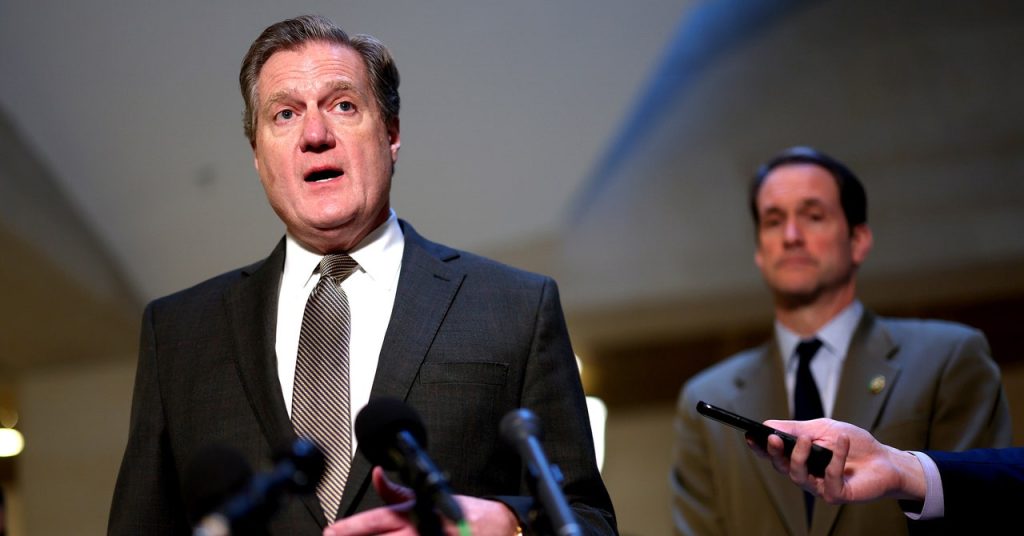Biden Signs Controversial Surveillance Bill, Expanding US Intelligence Powers
Over the weekend, President Joe Biden signed a contentious bill that not only prolongs but also strengthens the United States’ ability to intercept and store Americans’ text messages, calls, and emails for foreign intelligence purposes. The specifics of these enhancements are likely to remain obscure to the public for years to come.
Warrantless Surveillance Program Extended and Expanded
The bill, which extends the life of a warrantless US surveillance program for two years, brings an end to a months-long battle in Congress over an authority that US intelligence agencies admit has been extensively misused in the past. The program has also been expanded to encompass a broader range of US technologies, potentially jeopardizing the continued global free flow of data between the US and its allies.
Secret Court Grants Surveillance Power to US Intelligence
US intelligence agencies obtain their extensive surveillance power through annual certifications issued by a secret court. These certifications allow the NSA to compel businesses in the US, classified as “electronic communications service providers” (ECSPs), to cooperate with the program by collecting data and installing wiretaps on the agency’s behalf.
Expansion of ECSP Definition and Its Implications
The government previously attempted to unilaterally expand the definition of ECSP under the law, aiming to force the cooperation of entirely new categories of businesses. However, this effort was rejected by the FISA court in 2022, which stated that only Congress has the authority to rewrite the law. The House Intelligence Committee introduced an amendment last year to codify the desired expansion of the 702 program, broadening the definition of an ECSP.
Controversial Passage and Defeat of Reforms
With the support of party leaders, the House and Senate intelligence committees wielded significant influence over the bill’s trajectory through Congress. They lobbied lawmakers alongside the intelligence community to defeat a series of popular reforms, including a House amendment that would have required the FBI to obtain search warrants before accessing the communications of Americans collected under Section 702.
Jurisdictional Shift and Its Consequences
Traditionally, the House and Senate judiciary committees, which oversee the work of the US Justice Department, have held jurisdiction over FISA. However, much of their authority was diminished after House Speaker Mike Johnson adopted the pro-surveillance views of the intelligence committee members, which align with those of the White House.
Concerns Over Expanded Surveillance Scope
Legal experts, including attorneys who have argued cases before the FISA court, say the new ECSP text encompasses owners of facilities housing equipment used to store and carry data, as well as commercial landlords and virtually anyone with access to communications equipment in those spaces. The text, which some have described as “breathtakingly broad,” could potentially subject millions of businesses to secret surveillance orders.
FBI Abuse and Codification of Internal Procedures
The FBI has a history of abusing its access to data collected under Section 702. Investigators at the bureau have been caught unlawfully scouring 702 data for information on American protesters, journalists, and political donors. The FBI instituted numerous new procedures in an attempt to curb abuse internally, practices that are now codified under the law. House and Senate intelligence members argue that codifying these policies will serve as a sufficient safeguard against further abuse, while civil libertarians who have pursued new warrant requirements under FISA believe that the FBI should not be trusted to oversee itself in light of recent scandals.
Criticism and Concerns Over Civil Liberties
Liza Goitein, a FISA expert and senior director at the Brennan Center of Justice at New York University School of Law, criticizes the bill signed by Biden, stating:
“Although some senators fought valiantly to protect Americans’ civil liberties, they could not overcome the barrage of false and misleading statements from the administration and surveillance hawks on the congressional intelligence committees. This is a truly shameful episode in the history of the US Congress, and sooner or later, the American people will pay the price.”
Goitein warns that the bill represents “a gift to any president who may wish to spy on political enemies,” highlighting the potential risks to civil liberties posed by the expanded surveillance powers.

4 Comments
Big Brother’s getting an upgrade and we’re just out here trying to remember what privacy felt like, right?
Privacy? That’s so last century, welcome to the era of ‘Big Brother is Watching You’ for real!
Oh great, just what we needed, more eyes in the sky peeking into our lives!
Another day, another dollar, and yet another inch of our privacy slipped away… how quaint.